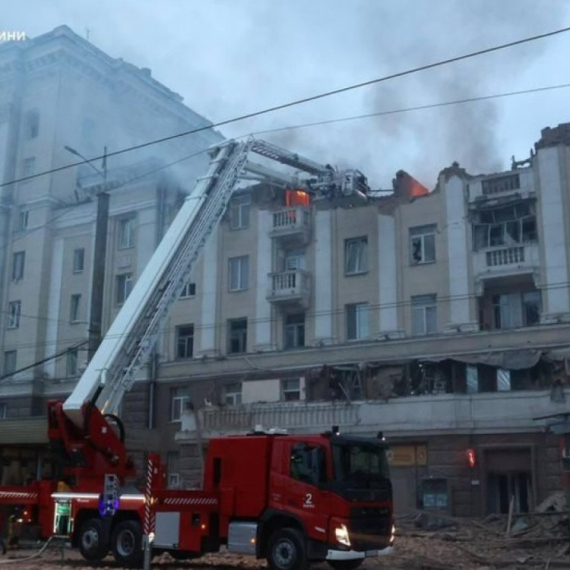Serbia, Croatia sign extradition agreement
Serbia and Croatia have signed an agreement for extraditing their citizens suspected or convicted of serious crimes.
Tuesday, 29.06.2010.
13:34

Serbia and Croatia have signed an agreement for extraditing their citizens suspected or convicted of serious crimes. The agreement was signed in Belgrade by the two countries' justice ministers, Snezana Malovic and Ivan Simonovic. Serbia, Croatia sign extradition agreement The agreement will enable Croatia to extradite Sretko Kalinic, a fugitive convicted of the assassination of Serbian prime minister Zoran Djindjic, who was a fugitive until recently, when he was shot and wounded by a fellow gang member in Zagreb. According to Zagreb, the agreement will take power immediately for the extradition of persons suspected or convicted of crimes related to organized crime and corruption. The extradition procedures are expected to last in between one and four months, depend on whether or not the suspect or convict wants to be extradited. The agreement is very important for Croatia, which has seen an increase in the migration of regional criminal to the country recently. It is also important for cooperation in cases of organized crime, such as the murder of newspaper owner Ivo Pukanic in Zagreb last year, or the spectacular EUR 2mn robbery of the Split post office, which Serbian and Croatian criminals pulled off several years ago. As for other regional countries with similar problems, Bosnia-Herzegovina will not be able to sign such an agreement until it adopts changes to its Constitution, said reports. Ahead of the signing ceremony today, Malovic hailed the the agreement as "historic". “The extradition process is considered urgent, especially in a case such as Kalinic’s” Malovic said, and said she expected him to be handed over to Serbia sooner than the four-month deadline mentioned by officials. As far as a similar agreement with Montenegro is concerned, experts in that country are at odds over whether its Constitution allows for Montenegrin citizens to be extradited, said the minister. “A political will exists in Serbia for such an agreement to be signed, and as far as we are concerned, there are no obstacles for this,” Malovic said, adding that regional police forces and courts must consolidate their efforts in order to successfully battle organized crime. Snezana Malovic and Ivan Simonovic (Beta)
Serbia, Croatia sign extradition agreement
The agreement will enable Croatia to extradite Sretko Kalinić, a fugitive convicted of the assassination of Serbian prime minister Zoran Đinđić, who was a fugitive until recently, when he was shot and wounded by a fellow gang member in Zagreb.According to Zagreb, the agreement will take power immediately for the extradition of persons suspected or convicted of crimes related to organized crime and corruption.
The extradition procedures are expected to last in between one and four months, depend on whether or not the suspect or convict wants to be extradited.
The agreement is very important for Croatia, which has seen an increase in the migration of regional criminal to the country recently.
It is also important for cooperation in cases of organized crime, such as the murder of newspaper owner Ivo Pukanić in Zagreb last year, or the spectacular EUR 2mn robbery of the Split post office, which Serbian and Croatian criminals pulled off several years ago.
As for other regional countries with similar problems, Bosnia-Herzegovina will not be able to sign such an agreement until it adopts changes to its Constitution, said reports.
Ahead of the signing ceremony today, Malović hailed the the agreement as "historic".
“The extradition process is considered urgent, especially in a case such as Kalinić’s” Malović said, and said she expected him to be handed over to Serbia sooner than the four-month deadline mentioned by officials.
As far as a similar agreement with Montenegro is concerned, experts in that country are at odds over whether its Constitution allows for Montenegrin citizens to be extradited, said the minister.
“A political will exists in Serbia for such an agreement to be signed, and as far as we are concerned, there are no obstacles for this,” Malović said, adding that regional police forces and courts must consolidate their efforts in order to successfully battle organized crime.



























































Komentari 2
Pogledaj komentare